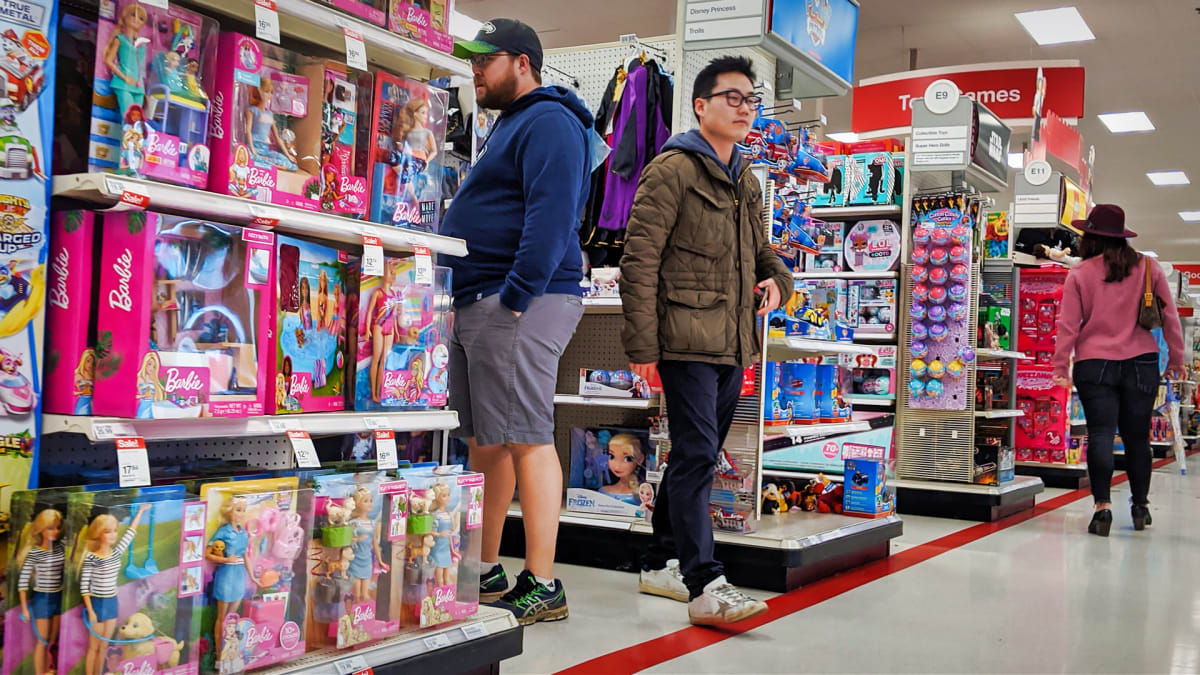
Wall Street has pummeled Target Corporation (TGT) shares of late and you can see why.
The retailer’s core strengths lie in categories like apparel, accessories, and home goods, precisely the merchandise consumers are avoiding because of high inflation.
Target barely squeezed a sales gain during the first quarter and will need a strong back to school shopping season if the company wants to stay on the upper end of its already modest sales forecast for 2023.
But there’s one group of consumers that are flocking to Target: wealthy households. Though relatively small, the retailer is capturing enough of them so that the company at the minimum can still generate healthy profits even if overall sales stay flat or decline.
Trying to Balance 'Expect More' With 'Pay Less'
Placer.ai, citing data from STI: Popstats, shows that Target is outperforming expectations in this regard. While 17.8% of Target's potential market are households earning over $150,000 a year, the company is actually capturing 19.6% of those households.
“The higher income among Target’s captured market visits highlight Target's ability to attract financially comfortable consumers – which may be giving the company a leg up during the current inflation-induced retail downturn,” the Placer.ai report said.
In some ways, this is nothing new. Compared to rivals like Walmart Stores Inc. (WMT) and Amazon Inc. (AMZN), Target has long enjoyed a reputation of a more high-class discounter, thanks in large part to its exclusive design partnerships with people like Michael Graves, Jason Wu, Kate Spade, and Missoni. That’s what Target means when it says “Expect More, Pay Less.”
But Target is a mass retailer that is supposed to court consumers of all incomes. At times, the retailer seems to forget this. The most glaring example was its ill-fated holiday partnership with luxury department chain Neiman Marcus. The collection flopped, mostly because Target priced the merchandise too high.
And for years, Target did a lousy job with reliably supplying its stores with food and groceries, the non-discretionary categories that drive repeat traffic because consumers always need to replenish their kitchens.
Under CEO Brian Cornell, the retailer has focused on “rebalancing its portfolio,” starting with very non-glamorous items like milk, eggs, and cereals.
“When I arrived at Target just under nine years ago, our food and beverage category was underperforming and losing market share,” Cornell recently told analysts. “But rather than turning away from that part of our business, we decided to lean in.”
“Much of that work happened behind the scenes, and it took time before business trends in food and beverage started to change, but the work paid off over time,” he said.
Target entered 2023 following three straight years of “unprecedented” growth and market share gains in food and beverage, the company said.
Partnering With Ulta Beauty
And it's a good thing too since Target’s grocery and household essentials are the categories performing well as inflation-wary consumers cut spending on things like clothing and electronics.
Target knows that its upper income appeal is what has always made it special. That people who make well over six figure annual salaries would frequently shop at a retailer that’s technically a mass discounter is what separates Target from rivals like Walmart and Costco Wholesale Corporation (COST).
So it’s no accident that Target has heavily invested in its partnership with Ulta Beauty (ULTA), another company that appeals to a wealthy demographic but still sells plenty of products to consumers from all income groups.
“Similarly to Target, Ulta appears to be successfully catering to all income brackets – and the brand seems particularly strong among high-income shoppers,” the Placer.ai report said.
“In a period marked by economic uncertainty … Target and Ulta data indicates that it is possible to appeal to affluent shoppers while catering to a wide range of customers and remain relevant in a changing marketplace.”







